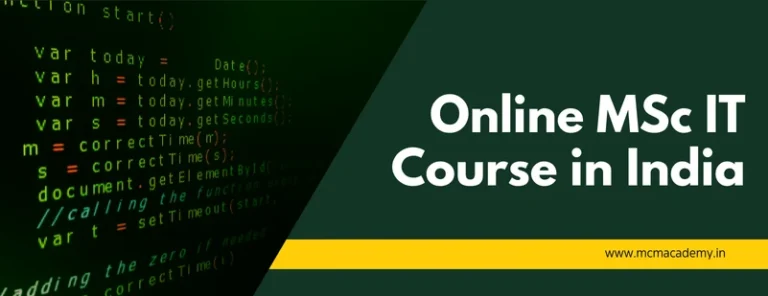If you’re considering advancing your academic career through research, you’ve probably come across the term MPhil. But what exactly is an MPhil? How does it differ from other postgraduate degrees, and is it still relevant in today’s higher education landscape—especially in India? As a higher education and career expert, I’m here to break it all down for you in a clear, practical, and conversational way.
Table of Contents
What is an MPhil?
An MPhil (Master of Philosophy) is a postgraduate research degree that typically involves both coursework and independent research, culminating in a thesis. In most education systems, it serves as a gateway to doctoral studies or as a stand-alone research qualification.
Key Features:
- Postgraduate research-oriented program.
- Includes coursework and original research.
- Duration: 1–2 years (full-time).
- Final assessment through a thesis and/or viva voce.
MPhil: Global vs. Indian Scenario
Here’s a quick comparison of how MPhil is positioned internationally and in India:
| Feature | International (UK, AUS, US) | India (Until NEP 2020) |
|---|---|---|
| Duration | 1–2 years | 1–2 years |
| Purpose | Gateway to PhD or independent research | Pre-PhD qualification |
| Current Status | Offered by select universities | Discontinued post-2023 |
| Thesis Requirement | Mandatory | Mandatory |
| Coursework | Optional / minimal | Mandatory |
Note: As per India’s NEP 2020, MPhil programs have been discontinued, and direct PhD admissions are now encouraged.
MPhil vs Other Postgraduate Degrees
| Degree | Focus | Duration | Research Component | Career Path |
|---|---|---|---|---|
| MPhil | Research + Thesis | 1–2 years | Major | Academia, PhD, Research |
| MSc/MA | Coursework | 1–2 years | Minor/None | Industry, Professional |
| MRes | Research-Focused | 1–2 years | Major | Research, PhD |
| PhD | Original Contribution | 3–5 years | Extensive | Academia, Senior Research |
Structure & Curriculum
An MPhil typically includes:
- Research Methodology Courses
- Subject-Specific Coursework (optional in some countries)
- Independent Research
- Thesis (25,000–50,000 words)
- Viva Voce / Oral Defense
- Duration: 1–2 years (full-time), 2–4 years (part-time)
Eligibility & Admission Process
Internationally:
- Master’s/Bachelor’s with strong academic record.
- Research proposal.
- Statement of Purpose (SOP).
- Academic references.
- Interview (optional).
In India (Before NEP 2020):
- Master’s degree with minimum 55% marks.
- Qualifying in entrance exams like UGC NET/JRF.
- Research proposal presentation and interview.
Career Opportunities After MPhil
While MPhil may be discontinued in India, internationally it remains a valuable credential. Here’s what you can pursue after completing an MPhil:
- Direct PhD admission
- Academic roles (Lecturer, Assistant Professor)
- Research Analyst/Scientist in think-tanks and organizations
- Publishing and Content Development
- Policy Research and Advisory roles
Potential Employers:
- Universities and Colleges
- Research Institutes (National and International)
- NGOs and Think-Tanks
- Government Research Bodies
- International Organizations (like WHO, UNDP)
Pros and Cons of an MPhil
Pros:
- Shorter duration compared to PhD.
- Excellent foundation for research and academic writing.
- Globally recognized in select regions.
Cons:
- Discontinued in India.
- Limited recognition outside academic and research circles.
- Fewer funding opportunities compared to PhD programs.
Should You Pursue an MPhil in 2025?
Ask yourself:
- Do you enjoy independent research?
- Are you aiming for a career in academia or a doctorate?
- Is MPhil recognized and valued in your country/university of choice?
If most of your answers are ‘yes’ and you’re outside India or in regions where MPhil still holds prestige, it’s worth considering. Otherwise, exploring direct PhD or MRes programs might be more practical.
Frequently Asked Questions
Q1: Is MPhil still valid in India?
Ans. No. MPhil has been phased out as per the National Education Policy 2020.
Q2: What’s the main difference between MPhil and PhD?
Ans. MPhil is a preparatory research degree, while PhD involves original contribution to knowledge.
Q3: How long does an MPhil program last?
Ans. Typically 1–2 years full-time.
Q4: Can MPhil holders apply for PhD programs?
Yes, and in many cases, an MPhil can lead to a PhD with credit transfer internationally.
Final Thoughts
MPhil continues to be a respected qualification globally, especially in countries like the UK and Australia. In India, however, its era has ended. If your goal is research, academia, or policy advisory roles, and you’re based in a region where MPhil is valued, it remains a worthy option. Otherwise, direct PhD or research-focused master’s programs are your best bet in 2025.
Pro Tip: Always check specific university and country guidelines before applying.























